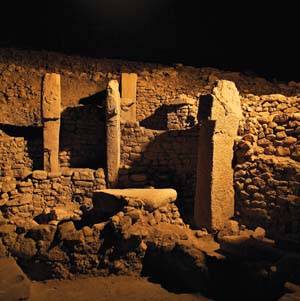This article is a preview from the Spring 2017 edition of New Humanist. You can find out more and subscribe here.
Recent headlines in the British press claimed that students at the School of Oriental and African Studies (SOAS) had demanded their lecturers drop all white philosophers from the syllabus. Many news outlets referred to a “ban” on the teaching of specific philosophers, naming Plato, Descartes and Kant. But the stories were only partly correct. There is indeed a movement among students at SOAS and many other universities around the country that calls for “decolonisation” of the curriculum: a demand for courses that give more opportunities to study black and brown theorists and academics, rather than treating them as a token addition to a white-dominated syllabus. But they were not calling for a ban. In reality the students’ union had said: “SOAS’s focus is on Asia and Africa and therefore the foundations of its theories should be presented by Asian or African philosophers”. On this basis they suggested that the majority of philosophers taught should be from the Global South and where white philosophers are taught it should be from a critical standpoint, addressing contexts such as colonialism.
Though many of the circulating stories relied on a distortion of the facts, the SOAS case has usefully exposed a certain anger and defensiveness over attacks on “white” philosophy. Why does the mere suggestion of critically discussing race in philosophy give rise to such opprobrium?
Until last year I studied philosophy at Birkbeck College, next door to SOAS on the University of London campus. Thinking back, I remember that not a single lecturer in my department was black. It was a small department so perhaps that can be forgiven. Yet when I think back again to the content of my classes, it’s startling to note that I was never taught a single primary text by a non-white philosopher. In fact, I’m not sure I was even suggested secondary reading by non-white philosophers. My education in philosophy ran comprehensively from the Pre-Socratic period, through Kant, to current analytic thinking, yet across several millennia of thought there was no room for anything outside the Western canon.
At the time I hardly noticed how white my curriculum was, but now I am certainly poorer for it. There was no mention of the Islamic scholars who kept the work of Aristotle alive for centuries whilst it remained largely forgotten by Europeans, and I felt political philosophy was stale without obvious inclusions like Frantz Fanon. If we’d studied the work of black existentialists perhaps we could have developed a framework for understanding the black experience. Far from banning white philosophers, it feels as if there is a soft ban on black people in the academy.
The students at SOAS at no point named any philosophers they would remove from the curriculum. Their proposal only specifically mentions “Enlightenment” philosophers as an example of when it would be important to also teach the colonial context to a work. They’re right: the Age of Enlightenment was also the age of colonial “discovery”. While philosophers were busy discovering the centrality of humans in the universe, colonialists discovered foreign lands inhabited by people they didn’t see as quite human.
Not everyone agrees. “If they think there is a colonial context from which Kant’s Critique of Pure Reason arose, I would like to hear it,” the philosopher Roger Scruton told the Mail on Sunday in response to the SOAS story. So here it is: in the Critique of Pure Reason Kant argues that “knowledge” isn’t about the world out there, but the framework of understanding that humans bring to bear on it. In other words Kant’s epistemology is an anthropocentric one. If a thinker puts human beings at the centre of his thought, it’s prudent to read what he thought a human being was. For Kant that is quite clearly laid out in his anthropological work Of the Different Human Races where he places the “noble blond” northern European at the top of a taxonomy of races. Should Kant be banned? No: as the SOAS students argued, an understanding of this context leads to a greater understanding of his thought.
The Enlightenment placed white Europeans at the centre of the world, thinking that it had placed all of humanity there. Its universal principles form the foundation of our ethical, political, thoughtful and aesthetic world, but those principles were not formed in a vacuum. They carry forward the trappings of racism to this very day. Getting rid of racism means developing new foundations for universal thought. A monocultural academy stands in the way of that, and when criticism is so desperately needed, why are we so hostile to the decolonisation of our minds?

